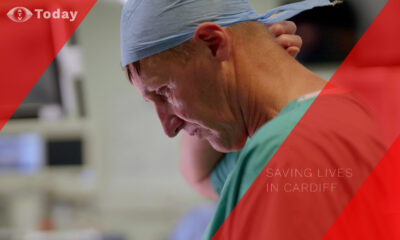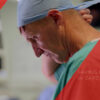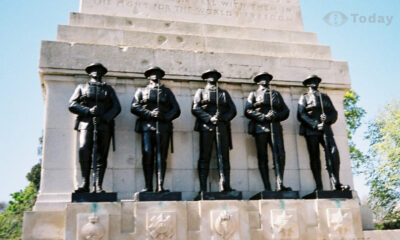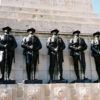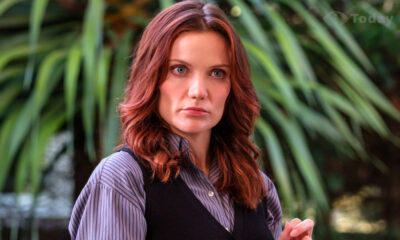This month South Africa heads to the polls, but this year has seen the country’s murder rate skyrocket to a 20 year high, with 27,400 murders last year…
As South Africans go to the polls in just over a fortnight, BBC Africa Eye has been given rare access to two communities on the frontline who are fighting back against a swell in violent crime. South Africa has an official unemployment rate of about 33%, one of the highest in the world. One in two young South Africans is unemployed and 60% are living under the poverty line.
According to the South African Institute for Security Studies, the detection rate for murder is less than one in five. With trust in police falling, civilian patrol groups taking matters into their own hands, are using powers usually reserved for the police to catch people who they deem to be suspects. Reporter Ayanda Charlie is with two volunteer patrol units determined to protect their communities.
In the town of Brits near Pretoria, BBC Africa Eye is on patrol with a team of Afrikaans farmers, many of whom are members of the 300,000 person strong, nationwide pressure group AfriForum, which campaigns on behalf of mainly white Afrikaners, especially farmers.
Many of the volunteers carry concealed weapons. One volunteer, Dewald Van Wyngaardt tells Ayanda, “You can’t go to a gunfight with a knife. I won’t hesitate to protect my family.” BBC Africa Eye also reports on how the message that white farmers are being targeted and killed has gained global attention, despite there being no evidence that farmers are at any greater risk than the average South African.
Another farmer and patroller Johan De Klerk asks: “How much is enough, how far does either farm attacks, or murder or anything on white people. How far does it have to go before it’s called white genocide?”
BBC Africa Eye is also on patrol with a unit in Diepsloot, a predominantly black township of 300,000, where volunteers are unpaid, armed only with whips and have little protection. Team leader, 41 year old Abel Rapelago tells the BBC that the only way to keep their community safe is to patrol it themselves even if it means risking their own lives. He says, “Diepsloot is in the hands of the criminals”.
Unlike in the AfriForum patrol groups, the Diepsloot volunteers are badly equipped and at high risk of facing violence – they don’t have guns, bulletproof vests or cars to utilise. But team leader, Abel is not keen on using deadly force: “How can I kill someone whilst my intention is to save them? That’s why I’m in the patrol, I’m trying to save my community and my family,” Abel explains to the BBC.
A spokesperson for the South African Police Ministry told the BBC that they plan to recruit and train 30,000 police officers over the next three years. In a statement they said, “While we concede that crime is at unacceptable levels in some parts of the country, various and very aggressive policing interventions have been ushered in to improve the crime situation.”
“Acts outside the law can never be condoned or tolerated and any member of the community who resorts to taking the law into their own hands will continue to face the full might of the law.”
Watch BBC Africa Eye: Crime and Punishment in South Africa on BBC Africa’s YouTube channel and BBC iPlayer in the UK. Listen to The Documentary: Crime and Punishment in South Africa on the BBC World Service or wherever you get your podcasts.


